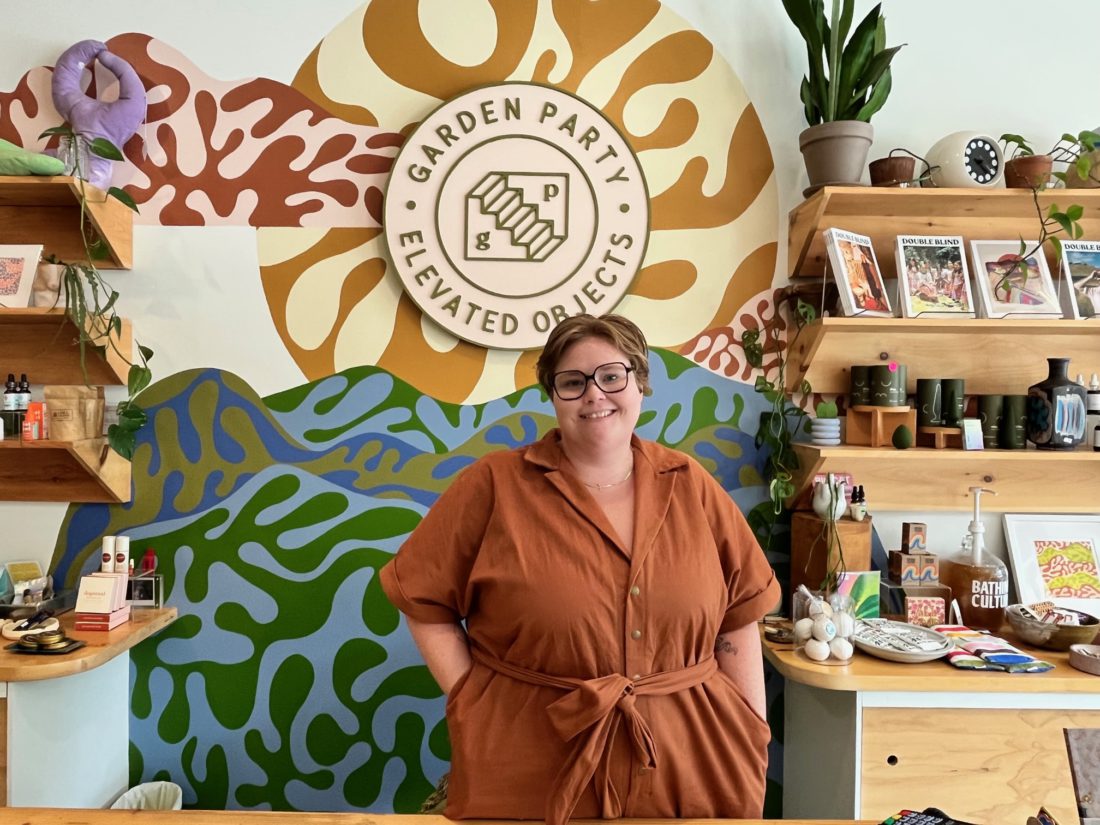For many people, late spring is a time to relax. But among those in Western North Carolina’s hemp industry, May and June brought weeks of anxiety over the possibility of their businesses taking a massive hit.
Since 2015, hemp has been legal in North Carolina through legislation passed by the General Assembly distinguishing it from marijuana, which remains an illicit substance in the state. This legislation, however, contained a sunset provision that had been set to go into effect June 30.
WNC’s hemp industry waited for the General Assembly to extend the plant’s definition because otherwise, hemp and CBD products might suddenly become illegal to sell. On June 30, lawmakers passed Senate Bill 762 (the 2022 Farm Bill) with language distinguishing marijuana from hemp, and Gov. Roy Cooper signed it. Cooper also signed Senate Bill 455, which explicitly legalized hemp.
That arrangement might have seemed to be the end of the hemp industry’s woes, but local businesses say it would be premature to stop there. To give the sector a bigger voice in shaping its own future, Nicolette Baglio, owner of Asheville hemp-based wellness brand Citizen Bloom Botanics, recently partnered with Raleigh-based lawyer Morgan Davis to form the N.C. Cannabis Business Commission — the state’s first cannabis-focused chamber of commerce.
A nascent industry
When Cooper signed SB 455, he released a statement saying the ability “to participate in this growing market is the right thing to do for rural communities and our economy.”
The potential for a growing market is of interest to Baglio and Davis, the latter of whom specializes in hemp and cannabis law. (Davis says about 25% of her clientele is from WNC.) The N.C. Cannabis Business Commission is their attempt to ensure that market develops favorably for the state’s existing hemp and cannabis businesses.“The idea is to give the industry a place to come together. That would mean plant-touching cultivators, product companies, wholesalers, extractors,” Davis explains. “Hopefully, we would have members of the banking community join who have hemp divisions and members of insurance companies who have hemp divisions join.”
One local banker with an eye on North Carolina’s growing market is Ross Sloan, senior vice president of hemp/cannabis banking at West Town Bank & Trust in Asheville. This year, Sloan assisted hemp cultivators in North Carolina with the transition to U.S. Department of Agriculture oversight, and he says approximately 5%-10% of his current hemp industry clients are in WNC. That clientele, of course, could increase based on what happens in the General Assembly.
“North Carolina being a conservative state, I think we’ll move slowly — which is OK,” Sloan tells Xpress. “Those of us that are proponents for medical cannabis all want it to move as quickly as possible. But I think we’d rather it move deliberately and get it right.”
Tarleton Wamsley, who co-owns the West Asheville cannabis lifestyle shop Garden Party, also wants any cannabis legislation to be deliberate. She would like North Carolina to legalize and develop an industry for recreational cannabis, as well as medical cannabis, and support equal access to licensing and business ownership.
In particular, Walmsley says, she supports the expungement of the criminal records “of people who’ve been harmed through the war on drugs, who’ve been criminalized through this process.” New York, for example, prioritized people with marijuana convictions for dispensary licenses, who are disproportionately nonwhite.
Says Walmsley, “We have an opportunity in North Carolina to look at other states who have either legalized medically or recreationally and do it better.”
‘A huge legal gray area’
Among the most pressing issues for the N.C. Cannabis Business Commission is Senate Bill 711, known as the Compassionate Care Act. Introduced by Republican state Sen. Bill Rabon, the bill would legalize marijuana usage for certain medical conditions, like epilepsy or HIV/AIDS, with a written diagnosis from a physician. It garnered the support of Senate Republicans but failed to pass the House before the end of the legislature’s short session in July.
Growers argue that poorly crafted language in SB 711 could freeze them out of the industry in favor of only big players. Baglio explains that the bill’s definition of hemp differs from that in SB 455, the legislation that legalized hemp and hemp products.
SB 711 uses the phrase “cannabis-infused, which is marijuana and hemp,” Baglio says. She worries that that definition means hemp products could be rolled into the definition of “cannabis-infused” products.
The language in SB 711 thus creates “a huge legal gray area,” Baglio continues. She believes the ambiguity was intentionally included by lobbyists for the legal cannabis industry, as it would group hemp and cannabis together.
Rabon did not respond to multiple requests for comment.
Baglio tells Xpress she’s spent the summer asking lawmakers to add language to SB 711 that clarifies that “this term does not include ‘hemp’ or ‘hemp products.’”
Says Baglio, “I would like to think [among] the lawmakers that it’s an oversight.”
‘Who’s going to benefit?’
It’s debatable whether SB 711 will pass the General Assembly at all, as there have been vast disagreements about its contents. State Sen. Julie Mayfield, who represents District 49, told Xpress in May “this bill would be worse than no bill.”
SB 711 creates an 11-member Medical Marijuana Production Commission and empowers it to approve only 10 medical cannabis supplier licenses for the entire state. The bill also requires vertical integration of each licensed medical marijuana business, called “seed-to-sale tracking,” and it requires every aspect of the supplier’s business — from cultivation to selling — to be operated by one company.

“As we look at these bills, it’s really important to see who’s going to benefit most from them,” says Wamsley of Garden Party. She says the only 10 seed-to-sale companies that could afford the proposed $50,000 per license would be multistate operators, i.e., established cannabis industry businesses based outside of North Carolina.
“Multistate operators have a lot of money,” explains Walmsley. “As a small business, we wouldn’t have even a foot in the door [to have] a license to operate.” She also points out that many people in the existing hemp industry, from farmers to shop owners like herself, work in specific areas of the industry. “We don’t have a farm, so if [licenses only go to companies that operate] seed-to-sale, that leaves us out of that structure as well,” she says. Opponents of the bill also say the list of medical conditions in SB 711 isn’t inclusive enough.
Due to these disagreements, SB 711 has languished in the House Committee on Rules, Calendar and Operations since early June, says Mayfield. That could be where the bill dies. “If it doesn’t come out of committee this year, then it’s dead for the year, and they have to start over with a new bill next year,” she explains.
“That’d be the best thing that could happen, because then it basically has to start over,” adds Baglio.




Before you comment
The comments section is here to provide a platform for civil dialogue on the issues we face together as a local community. Xpress is committed to offering this platform for all voices, but when the tone of the discussion gets nasty or strays off topic, we believe many people choose not to participate. Xpress editors are determined to moderate comments to ensure a constructive interchange is maintained. All comments judged not to be in keeping with the spirit of civil discourse will be removed and repeat violators will be banned. See here for our terms of service. Thank you for being part of this effort to promote respectful discussion.